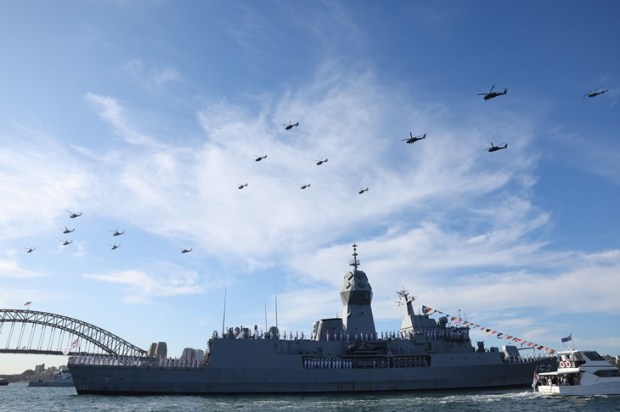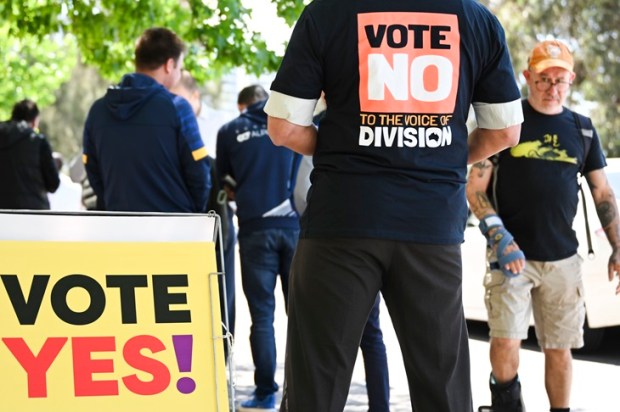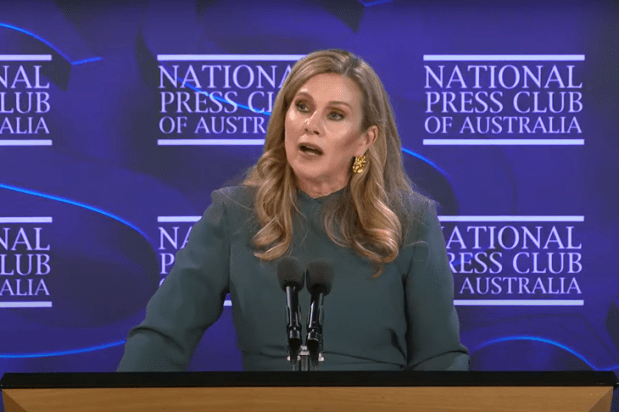Amidst the bluster of Paul Keating’s recent intervention into the security debate by declaring Australia’s the Aukus pact risks turning us into ‘the 51st state of the United States’, he fails to heed Winston Churchill’s warning that ‘there is only one thing worse than fighting with allies, and that is fighting without them’.
Australia’s security strategy since Federation has been to ally ourselves with a powerful defence partner – first the British Empire, and since the second world war, the United States. Regardless of the political outcome of the upcoming US presidential election campaign, come January 2025 there will be a new administration in charge of our key alliance partner.
When last in office Donald Trump had a fraught relationship with allies, demanding Nato members contribute more towards their defence, and controversially joking in February this year he would not protect a ‘delinquent’ Nato partner that has not paid its way.
Some fear Trump’s choice of vice-presidential running mate, JD Vance, might reinforce his isolationist tendencies, as Vance has been vocal in his opposition to continuing to fund the war in Ukraine. The angst about a future Trump administration is clear in Canberra, so much so, Defence Minister Richard Marles felt the need to reassure us that the Aukus agreement will not be affected if Trump wins.
Democrat nominee Kamala Harris has largely parroted the lines of the US foreign policy establishment when it comes to alliances like Nato, so is likely to cause less trepidation in Canberra, despite being far less experienced in the policy area.
But even if Harris is more of an establishment player, since the second world war, there has been a consistent theme in how Washington treats unreliable allies: the US eventually ditches losers. The abandonment of Afghanistan, along with billions of dollars’ worth of military equipment now in the hands of the Taliban, was just the latest example, which of course took place with Harris as Vice President.
Both sides of Australian politics agree, and the latest National Defence Strategy confirms, the current strategic situation facing Australia is ‘the most challenging environment since the second world war’.
Yet the reality is, we are not taking our defence seriously, so cannot expect our key ally to do so either.
As things stand, we are a country yet to design, build or deploy a single armed combat drone, is 4,500 personnel short of its recruitment goals, and whose surface navy has plummeted to its smallest size in generations. We look like the ‘freeloaders’ Trump wishes to look past, or the sort of unsteady partner the Washington foreign policy establishment has left adrift in the past.
Research by the Institute of Public Affairs again makes it clear we no longer have the luxury of time. Defence projects which take decades to deliver will not give our international partners any comfort in the absence of more practical and immediate solutions.
The nuclear submarines to be acquired under Aukus will be excellent, but these capabilities will not be online for a decade or more, and technical and political risks might blow this out further.
Australia needs to bolster its defence well before the long-term Aukus plan is implemented. We need to think fast and act now. This is why defence planners should be looking to acquire American B-21 Raider long-range stealth bombers to strengthen deterrence in the 2020s to mitigate the risk of delays to the Aukus submarines, and expanding the US Marine Corps’ rotational presence in northern Australia from 2,500 personnel to 16,000 – a full Marine Expeditionary Brigade.
According to defence expert Peter Jennings, the proposal to increase the US Marine Corp presence, which would require substantial Australian investment in improving critical infrastructure in northern Australia, still ‘offers the cheapest boost to deterrence Australia could possibly buy’. And crucially, it would help solid if your relationship with the US.
Acquiring B-21 bombers would also be the sort of bold move Australian defence policy has long lacked, and would signal we are serious about defending ourselves.
Australia should be similarly bold in our region by bringing Japan into Anzus cooperation, strengthening defence ties with India, and building a Pacific Response Force to address challenges, both security and humanitarian, that arise for our Pacific Island neighbours, and fortify the defence of Australia’s offshore islands in the Indian and Pacific oceans.
A change of government in the US should be a catalyst for change here. Business as usual makes Australia vulnerable and is liable to alienate our most crucial ally.
John Storey is the Director of Law and Policy at the Institute of Public Affairs and the author of the book ‘Big Wars: Why do they happen and when will the next one be?’

























